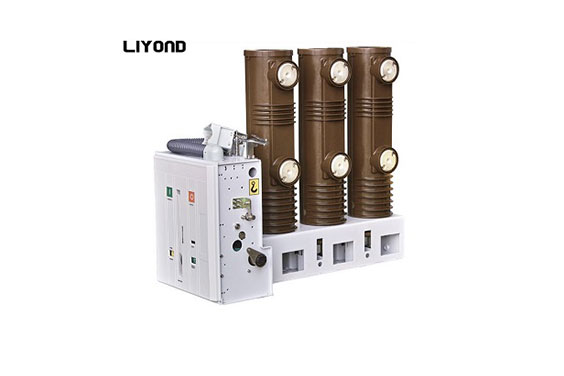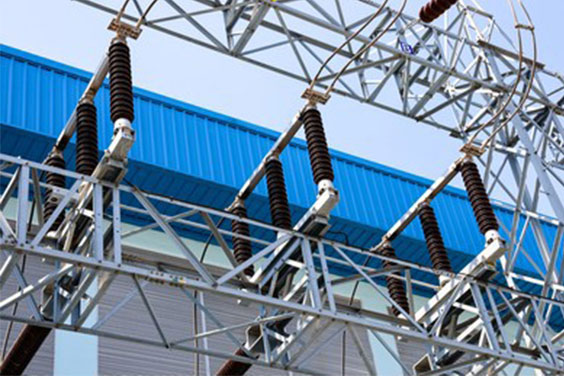Electrical circuits are configured to carry a specified amount of current. So, due to any reason, if it carries more than the supposed current, sensitive appliances and equipment will get damaged. In fact, the situation might be so brutal that the occupants in the building would get injured because damages to electrical circuits can result in a fire outbreak.
To prevent this unfortunate event, switchgear parts are used. Two notable components that are used are the disconnect switch and the circuit breaker. Both of these components prevent any form of electrical hazards, such as load current and load fault from happening. However, even though they perform a similar function, they are still different in some ways.
As one of the best high voltage switchgear manufacturers and an expert in making circuit breakers, we will be doing a comparison of circuit breaker vs. switch to know their differences. But before we discuss the difference between switch and circuit breaker, let’s examine what each of them is.
What is Disconnect Switch
A disconnect switch is a switchgear component whose major function is to disconnect some part of the electrical circuit i.e., to stop the flow of current in some section of the electrical circuit. This is done when inspection, maintenance, or repair is to be done to some parts of the electrical circuit.
An example of a disconnect switch is the fused load break switch. It’s a combination of a fuse and a switch. The fuse shuts the circuit off in the event of a problem and the switch disconnects the circuit. The fuse is designed to be the same as the current rating of the circuit. Once the current passing through the circuit is more than the supposed current rating, the fuse disconnects the circuit automatically. While switches work manually; they are used to disconnect the circuit manually.
Once a fuse disconnects the circuit, it gets damaged; it cannot be used again, so you’ll have to replace it when you want to switch on the circuit.
What is Circuit Breaker

A circuit breaker is a switchgear component that combines the functions of a switch and an overcurrent disconnect. Once there is a problem with the current flowing through the circuit, the circuit breaker shuts off the whole of the circuit. It can be manually shut off when the circuit or linked equipment requires maintenance. It has an electromagnet that automatically shuts it off when a short circuit or overload is detected.
Once the fault of a circuit breaker has been fixed, it just has to be switched on for power to be restored. An example of a circuit breaker is a HV vacuum circuit breaker. It’s a circuit breaker with a vacuum medium where the arc quenching takes place.
Difference between Switch and Circuit Breaker
Switches and circuit breakers differ in some ways even though they perform a similar function of regulating load currents in a circuit and have ground switch abilities. Now, we will compare circuit breaker vs. disconnect switch.
A circuit breaker’s major function is to disconnect the whole circuit in the event that there’s a fault, but a disconnect switch’s major function is to disconnect a part of the circuit.
Another point in the fused disconnect switch vs. circuit breaker comparison is that the former requires that the fuse is changed every time it’s called into action. The latter on the other hand does not require a new fuse every time it turns the power of the circuit off.
Which One is Best for Your Application
Fused disconnect switches guarantee the safety of your electrical equipment as power is being switched off immediately irregular currents are noticed in the circuit. Well, circuit breakers have the capability of providing the same function, and with circuit breakers, you won’t have to get a new fuse every time power is switched off due to an overflow of current or short-circuit.
A circuit breaker is a better alternative to a switch as you don’t have to replace the fuse every now and then. As a result, it is often regarded as the best option for every application. Circuit breakers can also be manually switched off since they perform the same function as a switch. This feature is very helpful if you need to carry out some electrical repairs in the house.
Common Question between Circuit Breaker vs. Disconnect Switch
Below are common questions and answers that are asked about circuit breakers and disconnect switches.
- What can a circuit breaker do that a disconnector switch cannot do?
Unlike a circuit breaker, a disconnector switch cannot suppress electric arcs which occur when conductors carrying high currents are electrically interrupted.
- Does a main switch have to be a circuit breaker?
Unlike a circuit breaker, a switch does not provide any form of protection. All you need to ensure that your switch has is the capability to carry the maximum load without failing. The purpose of a main switch to a circuit breaker is different. A main switch does not have to be a circuit breaker.
- How do a disconnect switch and a disconnect differ?
- A “disconnect switch” is also referred to as a load break switch. Its primary function is to serve as a disconnect means for a service entrance, while a “disconnect” major function is to protect heavy machinery like motors.
- How does a safety switch and a circuit breaker differ?
- A safety switch keeps engineers and technicians safe from electrical accidents like electrocution, while a circuit breaker protects the wiring and electrical system.
- How does a fusible switch and a non-fusible switch differ?
- A fusible switch has a fuse built into the switch and enclosure assembly, allowing you to open and close the circuit while also protecting it from overcurrent. A non-fusible switch, on the other hand, does not have a built-in switch and it doesn’t give any circuit protection.
Conclusion
Both of these components (switch and circuit breaker) assist in the elimination of issues caused by excess load current and short-circuit. As already identified above, a switch and a circuit breaker perform a similar function, but a circuit breaker has a greater advantage in the sense that you don’t have to always buy a new fuse after it’s being called into action. The distinction between these two components is in their design and functionality. As a result, before choosing between the both of them, consider your premises’ electrical requirements first. Also, make sure that you contact one of the best high voltage switch manufacturers who will offer you the best electrical equipment.
Elecspare as a professional switching device and vacuum circuit breaker manufacturer, makes quality switchgear components that ensure that your electrical system operates smoothly and safely. You can reach out for premium services.


